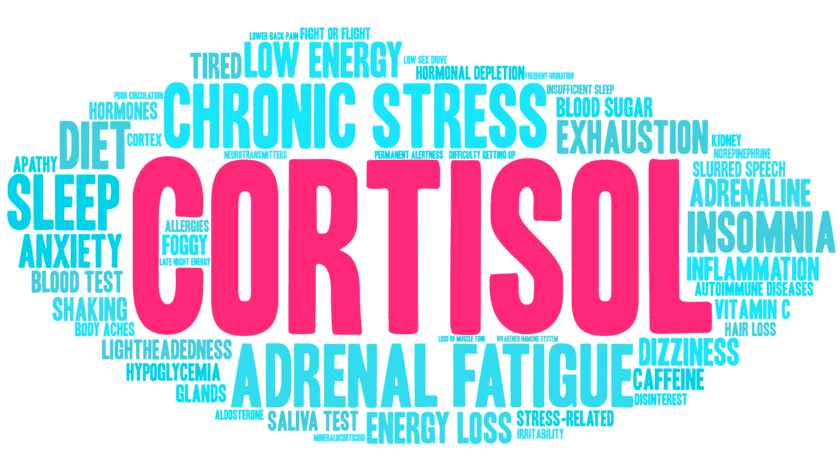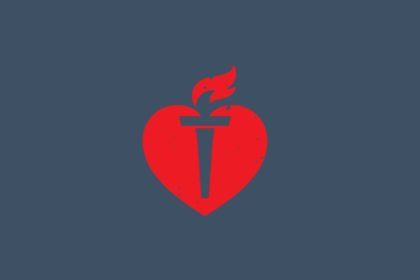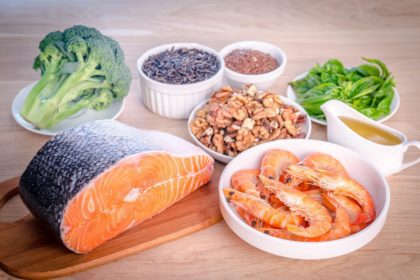One of the key and most overlooked reasons why you may have underlying medical conditions, such as cardiovascular disease and diabetes, that put you at risk for a severe immune response to COVID-19 is… stress. Here’s how stress can lead to not-so-healthy carb cravings, end up being life-threatening, and what you can do about it.
The Culprit: Cortisol
When you’re under stress, your brain triggers the release of hormones in your body, primarily cortisol and adrenaline, which elicits the stress response or the “fight of flight” response. This reaction can cause blood sugar spikes.
Stress blocks your body from releasing insulin, so blood sugar lingers and builds up in your blood. Chronic stress causes prolonged elevated blood sugar levels resulting in chronic inflammation. As we discussed a couple of weeks ago, blood sugar spikes are associated with a severe immune response to COVID-19. Pro-inflammatory cytokine production goes into overdrive causing excessive inflammation and tissue damage (organ failure).

Stress also prompts the craving for sugary, starchy foods. When your body thinks it’s under attack, it craves these refined carbohydrates thinking it needs instant energy. If eaten, these foods will spike blood sugar.
How Blood Vessels Get Damaged
When stress is constant and inescapable, such as during this pandemic, it can wreak havoc on your arteries. The inner lining of the arteries (endothelium) is meant to be smooth like Teflon.

When the inner lining is assaulted by blood sugar, cortisol and sodium, it loses its smooth non-stick surface (think sandpaper), whereby plaque sticks to it and builds up over time (atherosclerosis or clogged arteries).
“Mindfulness Meditation”
In a stressful world, human senses can diminish. Research suggests the practice of meditating can reduce emotional stress and improve physical well-being. There are several ways to meditate — one form being “mindfulness meditation”.
Mindfulness encourages awareness of your existing surroundings — i.e., staying in the present and noticing sights, sounds, and smells — rather than dreading the future or regretting the past. Staying focused on the present has long been known to help reduce stress and anxiety. Mindfulness is not results-focused. Fixating on the results will defeat the purpose (not staying in the present).
Ways to Mindfully Meditate
Aim to do one thing each day. Here are things you can do to mindfully:
- Cook with love not haste. Cooking is a way to express your love, but can become a rushed, results-focused chore. Take your time chopping, dicing, and slicing and enjoy the process.
- Sip tea. In Japan, the tea ceremony is a cultural activity that represents harmony, respect, purity, and tranquility.
- Take a nature walk. Nature has restorative effects on your sense of well-being. According to a 2019 University of Michigan study, even 20 minutes of feeling connected with nature can reduce stress levels.
- Listen to music. Dissect the music — separating out the lyrics, instruments, and melody. Feel how you respond to the sound.
- Do yoga or Tai Chi. These practices are like meditation in motion and focus on being in the moment and promoting serenity.
- Create art or craft a project. Enjoy the practice of drawing, painting, sewing, coloring by numbers — all of which can be meditative (i.e., it trains attention and awareness).

- Eat thoughtfully. Experience the temperature, texture, aroma, colors of all the ingredients before eating. Take notice of your level of hunger/fullness. Think about how the food was grown and ended up on your plate.
- Journal with spontaneity. Write whatever pops into your mind at the present moment. Let your thoughts flow freely. Don’t worry about grammar, spelling, or complete sentences. Just jot.
- Breathe with intention. Practice the 4-7-8 Breathing Exercise. This exercise has been shown to reduce anxiety, decrease blood pressure, and decrease chronic systemic inflammation.

![]() Karen’s Fit Tip: Mindfulness meditation can be done almost anywhere, anytime. Remember… it is a learned skill, so staying focused in the moment may take time to master.
Karen’s Fit Tip: Mindfulness meditation can be done almost anywhere, anytime. Remember… it is a learned skill, so staying focused in the moment may take time to master.





